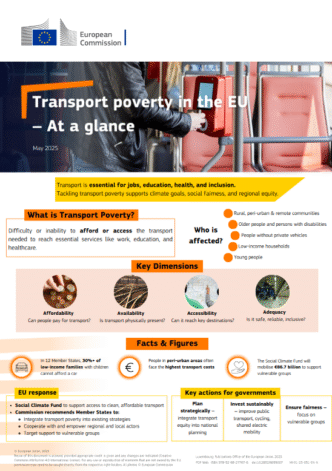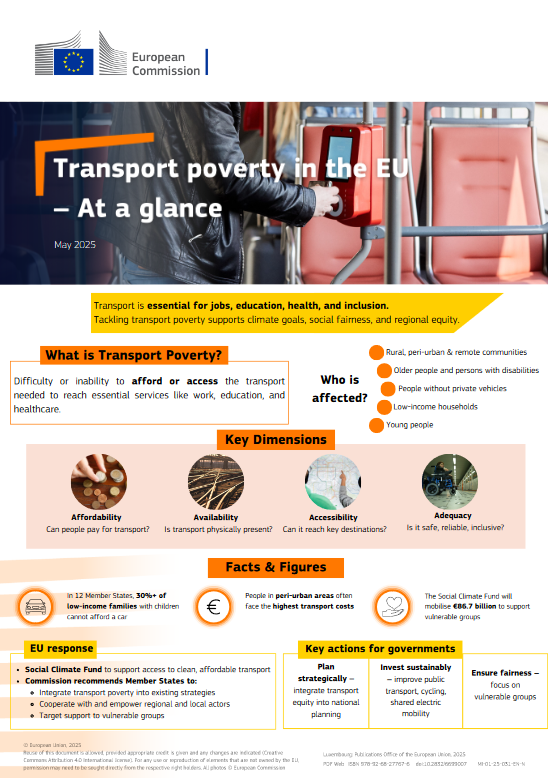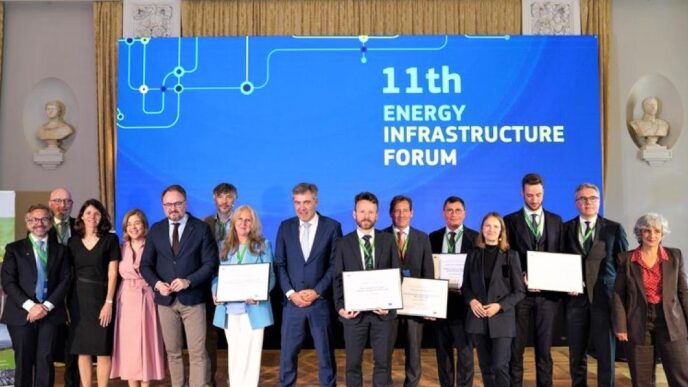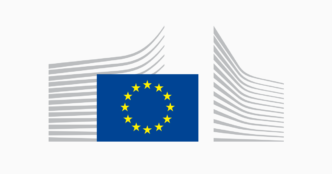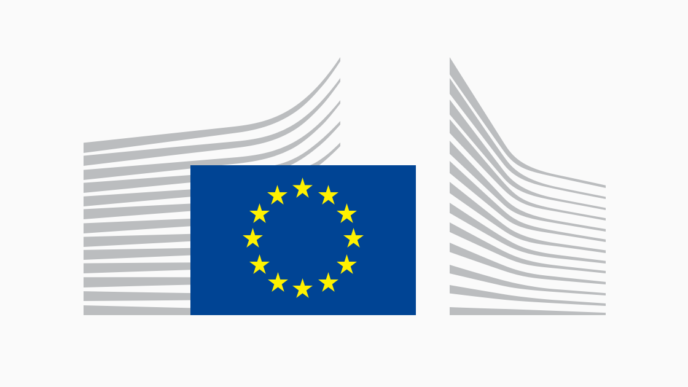The European Commission today adopted recommendations to Member States how to address the complex challenges of transport poverty across the EU notably in the context of the upcoming Social Climate Plans.
The Social Climate Fund is expected to mobilise at least €86.7 billion as from 2026. It will provide significant financial support to help Member States implement structural reforms and advance sustainable, inclusive mobility.
To access these fundings, Member States are required to develop national Social Climate Plans by end of June, outlining targeted measures and investments to support vulnerable groups affected by the new emissions trading system.
One possibility is through social leasing schemes for zero-emission vehicles, targeting vulnerable transport users, as outlined in the Automotive Action Plan. Additionally, the Commission recommends improving transport services in low-income areas, developing public transport infrastructure to connect these areas to city centers, and implementing voucher programs for public transport, zero-emission on-demand services, and enhanced accessibility for people with disabilities.
In support of these efforts, the Joint Research Centre has launched the Transport Poverty Hub, an online platform providing high-resolution maps, that help visually identify areas with well-developed and underdeveloped transport networks, providing valuable insights to policymakers into regional connectivity.
Commissioner for Sustainable Transport and Tourism, Apostolos Tzitzikostas, said: “Transport poverty is more than an economic challenge. It’s a barrier to social and climate justice. Today’s recommendation sets a strategy to break down those barriers, ensuring that all Europeans, regardless of where they live or what their income is, have fair access to affordable and reliable transport and the opportunities it creates.”
Transport poverty in the EU – At a glance
